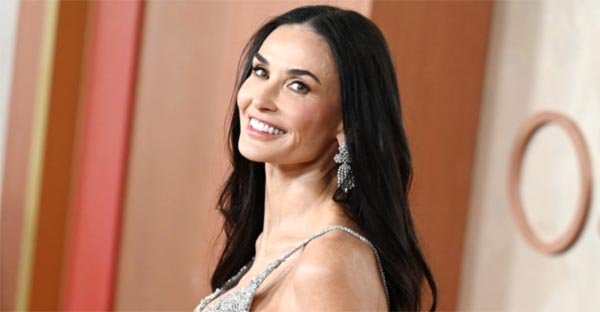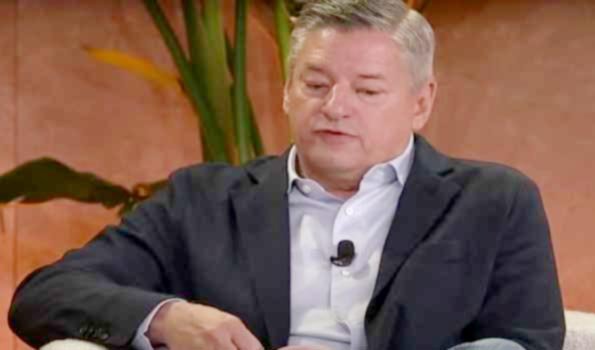Los Angeles, Apr 24 (UNI) Hollywood icon Demi Moore, long regarded as a paragon of physical dedication, is now pulling back the curtain on the psychological costs of that pursuit.
At the age of 62, “The Substance” star is candidly revisiting the toll such extreme once took on her well-being – physicality, mentally and emotionally.
In an exclusive conversation for PEOPLE ‘s ‘World’s Most Beautiful’ issue, Moore opened up about the ‘self-imposed torment” she endured for roles in films like “Striptease” (1996) and “G.I. Jane” (1997), where her dedication to physical transformation bordered on obsession.
“I mean, crazy things [with] diet and exercise, biking from Malibu and going all the way to Paramount about 26 miles,” she recalls in this week’s cover story. “All because I had placed so much value on what my outsides looked like”, as per as a report by PEOPLE.
It was, she confesses, a deeply adversarial relationship. The actress, who bulked up to portray Lieutenant Jordan O’Neill in G.I. Jane, admits at the time she was “so harsh and had a much more antagonistic relationship with my body. And straight up, I was really just punishing myself,” she says. “And in this desire to dominate it versus now, I have a much more kind of intuitive, relaxed, trusting relationship with my body.”
That antagonistic dynamic eventually gave way to a gentler, more intuitive approach. Moore insists the biggest difference for her today is that “it’s so much more about my overall health and well-being. It’s much more about longevity and quality of life. And I think I’ve evolved into greater gentility towards myself.”
The turning point came after filming “G.I. Jane”, a role that required her to build intense muscularity. “I had transformed my body multiple times, and obviously it was a much bigger, muscular body. And I’d had this incredible experience on this film, and I had experienced this sense of strength,” she explains.
“But I realised, I didn’t want to wear that. I wanted to just have that within me. And I think I was exhausted from putting it through so much over such a long period of time.”
What followed was a conscious act of surrender. “I stopped trying to control my food and I had a moment of surrender where I just let go and really understood what it meant to be in acceptance of my body as it is, even though it’s not the body I wanted. I really let go,” she recalls.
“I remember just asking to be my natural size because I didn’t know what it was anymore. I had three pregnancies. I had done all of this diet and exercise and controlled and changed it. And I didn’t know. So I just let go.”
The decision to embrace her authenticity was not without vulnerability. “The Substance”, her recent film includes nude scenes, Moore says there was also “liberation in that place of acceptance of my body as someone in their 60s. And it being what it is and it’s not the body that I had at 20, even when I was complaining about the body had at 20 or 30,” she admits.
“Even though it was a very vulnerable experience and a very raw experience. Because I really knew that in doing so, it was in service to the story, in service to what was important. The nudity was really an important part of the vulnerability that needed to be conveyed.”
When asked how she navigates in an industry notorious for its youth obsession, Moore allows the biggest thing “is really being in acceptance of who we are, as we are, at whatever moment that is,” she says. “I have a greater appreciation for all that my body has been through that brought me to now. Like how incredible that my body grew three human beings and I have overall really incredible health.
“That doesn’t mean that sometimes I look in the mirror and I don’t go, ‘Oh God, I look old,’ or ‘Oh, my face is falling,’ I do. But at the same time I can accept that that is where I’m at today and know the difference is that doesn’t define my value or who I am.”
These days, Moore says she trusts her body “when it tells me it needs something to eat, that it’s thirsty. I listen to my body and I have a lot less fear. When I was younger, I felt like my body was betraying me. And so I then just tried to control it. And now I don’t operate from that place. It’s a much more aligned relationship,” she adds.











